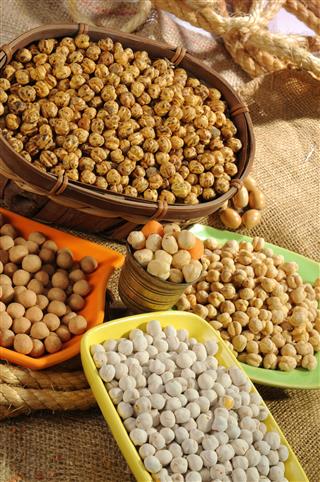
If the question how to treat high pulse rate is swirling in your mind, then this article would be a helpful read. The causes of increased pulse rate and simple home remedies to lower the pulse rate are described in this article. Scroll down….
High pulse rate
High pulse rate indicates high heart rate. It means your heart is beating faster than normal. Children above the age of 10 and adults, having pulse rate between 60-100 beats per minute (bpm) are said to have normal heart rate. To know about the normal pulse rate, pulse has to be measured when you are at rest. Higher than normal resting pulse rate is described as ‘tachycardia’, and it can be noticed in several situations.
Causes of High Pulse Rate
A healthy heart vs a weak heart
A healthy heart pumps sufficient blood with minimum contractions (beats) per minute. A weak heart has to work harder and faster to pump sufficient blood per minute. Heart rate or pulse rate thus helps assess heart health.
Following conditions can lead to high heart rate.
- Pacemaker of the heart not working
- Myocarditis, inflammation of the heart muscles
- Problems in blood circulation
- Long term high blood pressure
- Heart valves not functioning well
- Pericarditis, inflammation of the pericardium, the fibrous sac covering the heart
- Coronary heart diseases
- Insufficient supply of oxygen to the heart muscles
- Electrolyte imbalance
- One or more heart attacks
- Blood disorders, for example, thickening of blood
- Thyroid disorders
- Defective upper heart chamber
- Excess or insufficient sodium in diet
- Lung diseases, for example, chronic obstructive pulmonary disease. In this condition, the non elastic lung tissues affect the function of the heart.
Sometimes, an increase in the resting pulse rate is experienced temporarily. The causes include:
- Excessive emotional stress, fear, anxiety, nervousness
- Use of certain medications
- Vitamin deficiency
- Anemia
- Excessive consumption of certain medications, supplements
- Infections, high fever
- Excessive physical exertion, for example, mountaineering
- Heavy meal
- Consumption of stimulating substances such as tea, coffee (caffeine), tobacco etc.
The person experiencing increased pulse rate may suffer from dizziness, light-headedness, shortness of breath, heart palpitations, chest pain, excessive tiredness, fainting, etc.
How to Treat High Pulse Rate
As there exist several causes of high pulse rate, treatment for lowering the pulse rate may vary according to the cause. Whatever may be the cause, the condition requires prompt medical attention. Increased pulse rate indicates increased demand of oxygen for the heart (as the heart has to put extra efforts to pump sufficient quantity of blood). An untreated condition can lead to a heart attack. Scarcity of oxygen may result in the death of myocardial cells. This can give rise to angina. A chronic condition may lead to ischemic heart disease.
Medications
Doctors usually prescribe antiarrhythmics (arrhythmia is the term used to describe abnormal heartbeat), blood thinners, or other medications which help lower the heart rate. The treatment sometimes involves giving mild electrical shocks. This helps restore the function of the heart. You should inform your doctor about routine medications and, if some of them are increasing your pulse rate, the doctor can suggest alternatives.
Certain lifestyle and dietary changes
Besides proper medication, certain lifestyle changes and dietary changes can help bring down the pulse rate. You should avoid excessive consumption of drugs, caffeine, alcohol, supplements, etc. Smoking should also be avoided. A balanced and healthy diet that is low in cholesterol and fat can help maintain the weight within the normal range for your height.
Preventing formation of plaque in the arteries helps maintain unobstructed blood-flow and heart rate. Obesity is the main culprit which affects heart health severely. Consumption of good fat like fish oil, olive oil and avoiding bad fat, sugary foods, simple carbohydrates, processed foods, junk food can help improve heart rate. Regular consumption of fruits, vegetables, whole grain products, high fiber products, low fat dairy products, fish, lean meat, good fat, nuts, seeds, is essential for maintaining the health of the heart.
Stress management
Learning stress management techniques like yoga and meditation can help you lead a stress free lifestyle. Regular cardiovascular exercises (simple exercises like walking, jogging, running, swimming, cycling), breathing exercises help lower the stress and improve the function of the heart. These simple remedies work great for high pulse rate. Athletes who undergo intensive training exhibit an amazingly slow resting heart rate (40 – 60 bpm!). With balanced diet and regular exercise, you can also have a normal resting heart rate.









